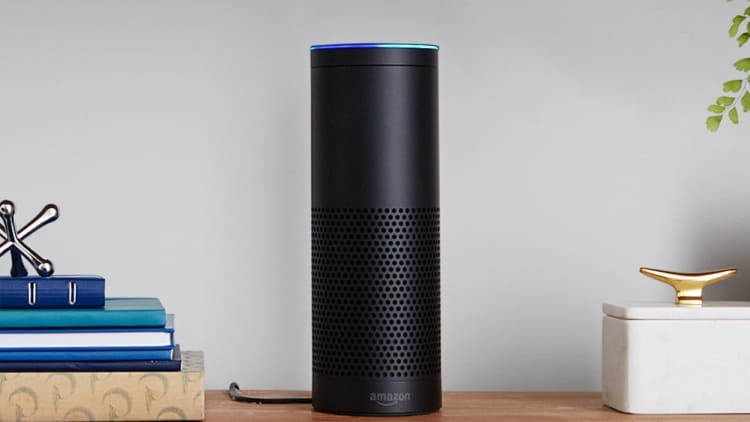Just over a week ago, Alexa moved in to live with me. She's pretty smart and very good at telling me the weather forecast and reminding me of things I need to do.
I'm talking of course about the artificial intelligence (AI) assistant that powers Amazon's Echo speaker, which the company launched in 2014 and recently made available in the U.K. and Germany.
The world's tech giants are pushing the capabilities of their AI personal helpers from Apple's Siri to Microsoft's Cortana and Facebook Chief Executive Mark Zuckerberg even said he is working on a robot butler.
It's early days yet though as my week with Alexa proved.
I set the device up in my bedroom. At first, the concept of talking to the Echo didn't come naturally. I was still using my phone to browse the web for answers. But slowly I started to test Alexa.

Firstly, I started with simple questions like asking the weather. But what was really smart about this was the ability to ask a question such as, "do I need an umbrella today?" And for Alexa to understand that I wanted weather news. This became something that I asked most mornings before leaving the house.
Alexa also became a handy assistant for setting reminders. I'd ask, "remind me to do my expenses tomorrow". But I was disappointed that Alexa wouldn't automatically say something at the time you set the reminder for. Or there was no push notification on the phone. So this function was reduced to just being a to do list.
Music was a strong spot given that Echo is, after all, a speaker. On a daily basis I'd use Echo to play music by linking it to my Spotify account. I could ask Alexa to play a specific song, or a playlist I'd made. It was clever, and was a great feature.
One of the key features touted by Amazon is the ability for the Echo to control connected devices in the home such as lightbulbs or a thermostat – of which I have neither – like many people I suspect. Right now, this eliminates a big use case for the device, but it won't be long until that changes.
Amazon is not alone in the AI personal assistant race. Google has recently renamed its rival to Google Assistant and Apple has Siri. Earlier this month, Google unveiled Home, a hub to rival Amazon's Echo. How this stacks up is yet to be seen, but Google has been investing heavily in AI and splashed out around $500 million for a U.K. firm called DeepMind with expertise in this technology.
There's always this niggling feeling though that you have a robot listening in on you. A few people who came to visit asked if it felt like someone else was in the house. Not really, the Echo has a handy mute button and as the days rolled on, it felt fairly natural to speak to it.
So far what I have described doesn't sound groundbreaking, but it's major progress for companies staking their future on their AI personal assistants to do everything. My week with Alexa wasn't groundbreaking, but it gave me a glimpse into the future which I certainly like the look of.





